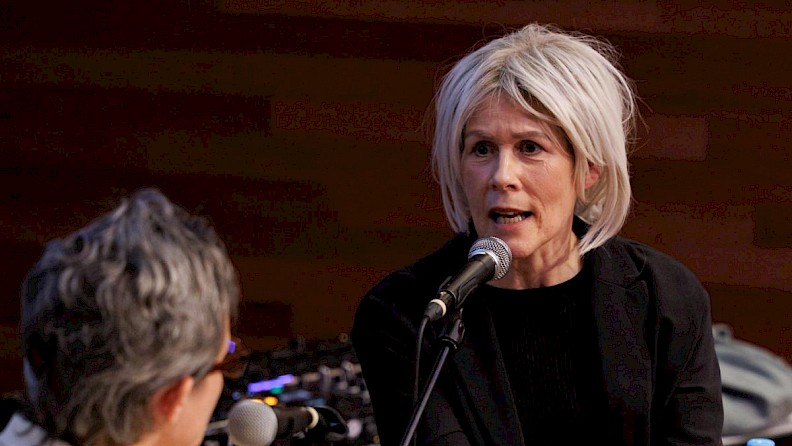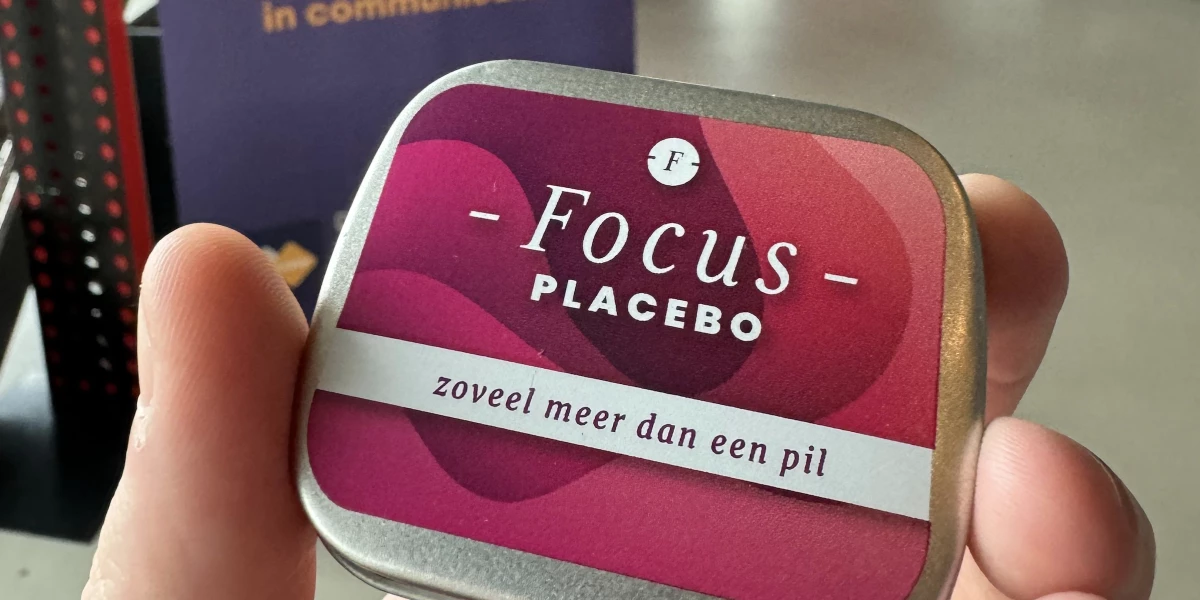Placebos really work: Andrea Evers on the power of placebo at the NPO Podcast Festival
“The placebo effect is not a matter of belief; it is scientifically proven to work," Professor of Health Psychology Andrea Evers explains. Therefore, she sees great potential for placebos in healthcare.
When you know you are taking a painkiller, its effectiveness increases compared to when you are unaware you are consuming medication, Evers explains. 'That's what we call the placebo effect.' Traditionally, doctors consider the efficacy of medications to be the determining factor for the success of a treatment. But research shows that this is not true: context, expectations, and trust also play an important role.
The placebo effect can be leveraged when doctors prescribe a medication. If they express that they expect the drug to work well, the patient will assume that the drug will indeed work well. Trust in healthcare professionals, combined with the patient's positive expectations, then ensures that the drug works even better.
The placebo effect is greatest when it is linked to a medication that has previously been effective. A positive experience with a certain medication creates the expectation that the medication will work again.
Placebo and Nocebo
This way, a positive experience ensures that your body becomes conditioned to the effect of the medication. For example, if you take a medication in combination with a drink and repeat this for three days, your body will start to associate the taste and smell of the drink with the medication. As a result, when you receive the same drink with a placebo pill, the body reacts the same way as it would with the actual medication. This is called the association effect. The body's response is based on past experiences.
The opposite effect also exists: the nocebo effect. If you previously experienced nausea after taking a medication and you know you will be taking the same medication again, this association can cause you to feel nauseous again. The information leaflet that comes with the medication can also have a negative effect on the experiences of people taking the medication. One study where people read this leaflet and then received a placebo pill showed that these people experienced the same side effects and complaints as those who took the active medication. They read the same leaflet.

A kiss to make it better
The placebo effect works slightly better in children than in adults. The "kiss to make it better" can work wonders. Really. For the placebo effect, human rationality is simply unnecessary; similar effects are seen in animals. Rats experiencing less pain due to a painkiller also experienced less pain after receiving a placebo. Ultimately, the placebo effect comes down to the learning effect, also known as conditioning. Both humans and animals respond automatically.
This means that the placebo effect could play an important role in healthcare. In clinical practice, a placebo can aid in the tapering of medication. If positive associations exist with the existing medication, they can exert their effects with a placebo.
For this to work, doctors must communicate empathically, to enhance the placebo effect. Additionally, they must be aware of the nocebo effect, where negative expectations can have opposite effects.
Less medication, more effects
The pharmaceutical industry views placebo with a mix of interest and tension. They are aware that treatment effects can only be partially attributed to a medication, but this remains a difficult phenomenon. In drug research, researchers aim to prove solely the efficacy of the medication. Therefore, the placebo effect must be excluded. Ultimately, Andrea Evers' goal is to achieve more effective treatments with fewer medications.
At the NPO Luister Podcast Festival, you may have received a box of Focus placebos. How do you use them? It is all about truly expecting these pills to work. So set a concrete goal. For example, wanting your headache to go away. Take a pill, continue to believe in it, and the placebo will do its job. Indeed, a placebo can still work, even when you know that it is a placebo.
Positive expectations
It is important to note that you may have had a previous experience with a similar pill. You may associate the white pill in the box you received at the NPO Luister Podcast Festival with paracetamol. Maybe you remember the time you were struggling to fall asleep due to a headache, took a paracetamol, and then fell asleep peacefully. Those positive experiences with similar pills make you expect that the pill will affect you positively again.
It almost sounds too good to be true, but Andrea Evers has scientifically proven the effect in many studies. This research shows that conditioning and the way a healthcare professional communicates affect the placebo and nocebo effects.
Lara Billie spoke with Andrea Evers at the NPO Podcast Festival. One of the people in the audience eventually asked whether a placebo is now the scientific evidence for manifestation. Not entirely. Listen for yourself.
More about Andrea Evers
Andrea Evers is a health psychologist at Leiden University and researches the effect of factors such as stress and expectations on illness and health.
You can read more about her on her extensive personal website.
She regularly publishes on placebos and nocebos, recent publications include:
Influencing the insulin system with the placebo effect (link)
Learned nocebo effects on the experience of pain and itch (link)
The optimal learning-cocktail for placebo painkillers (link)

